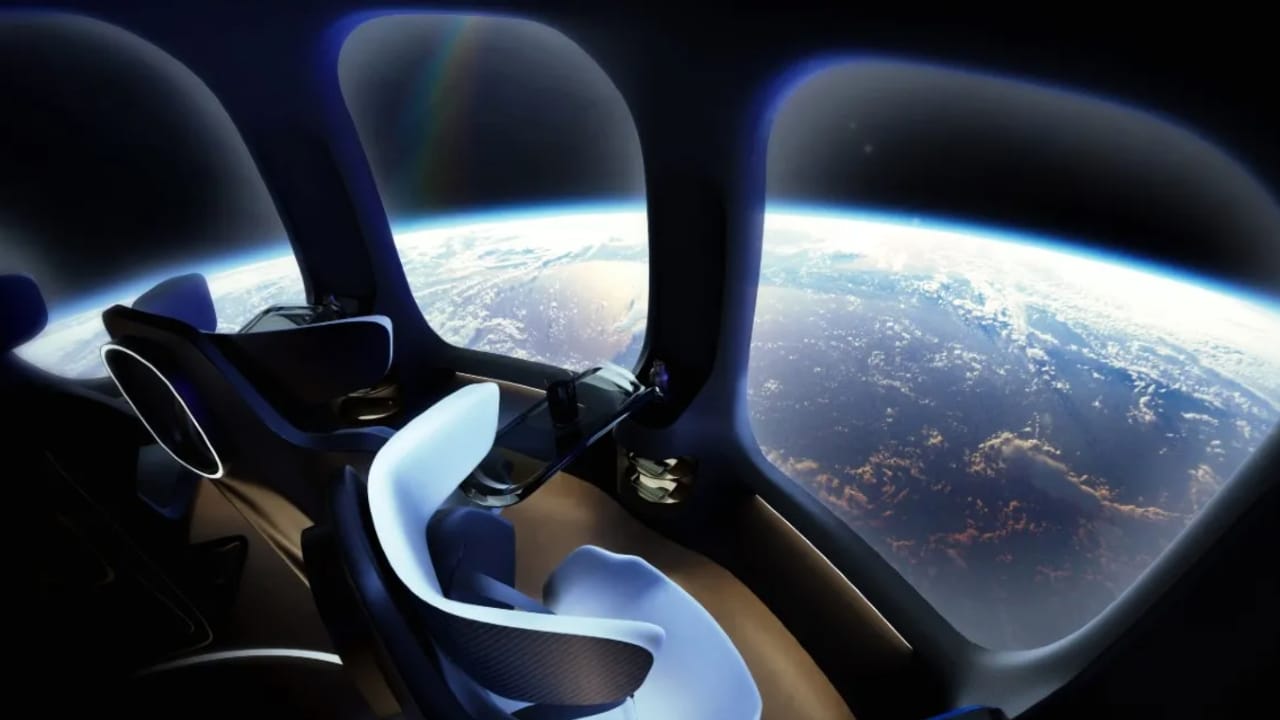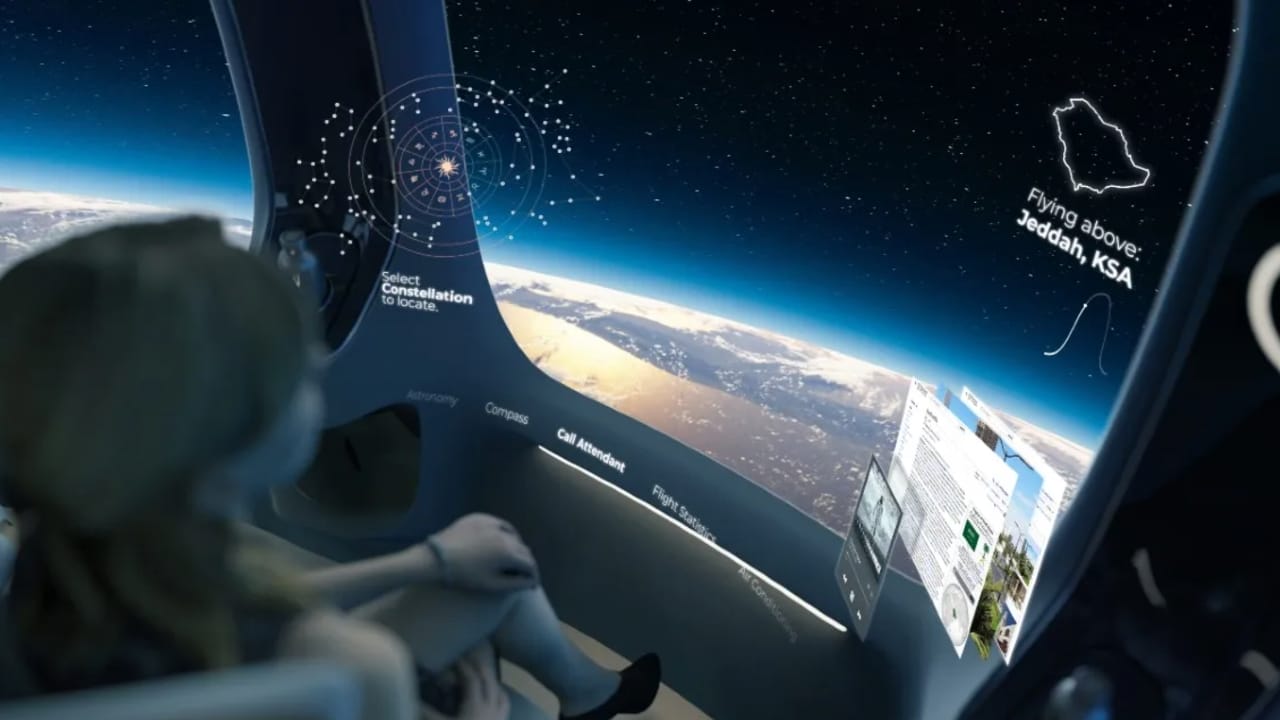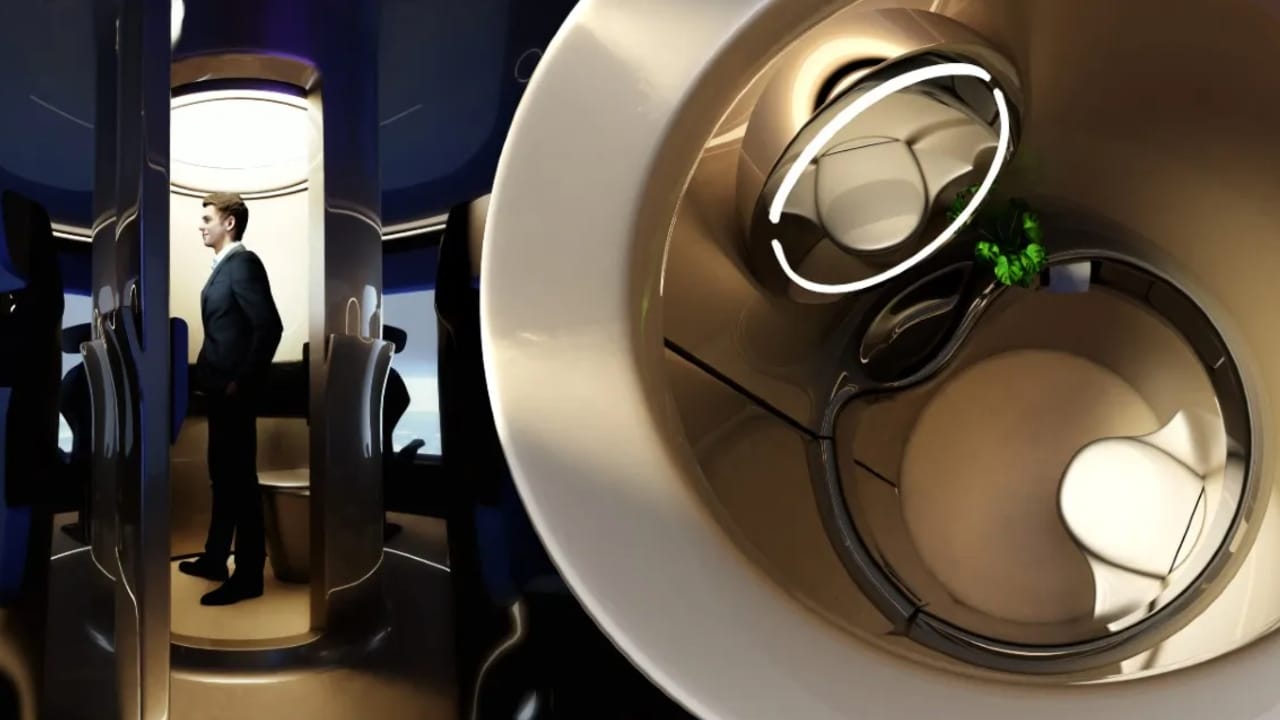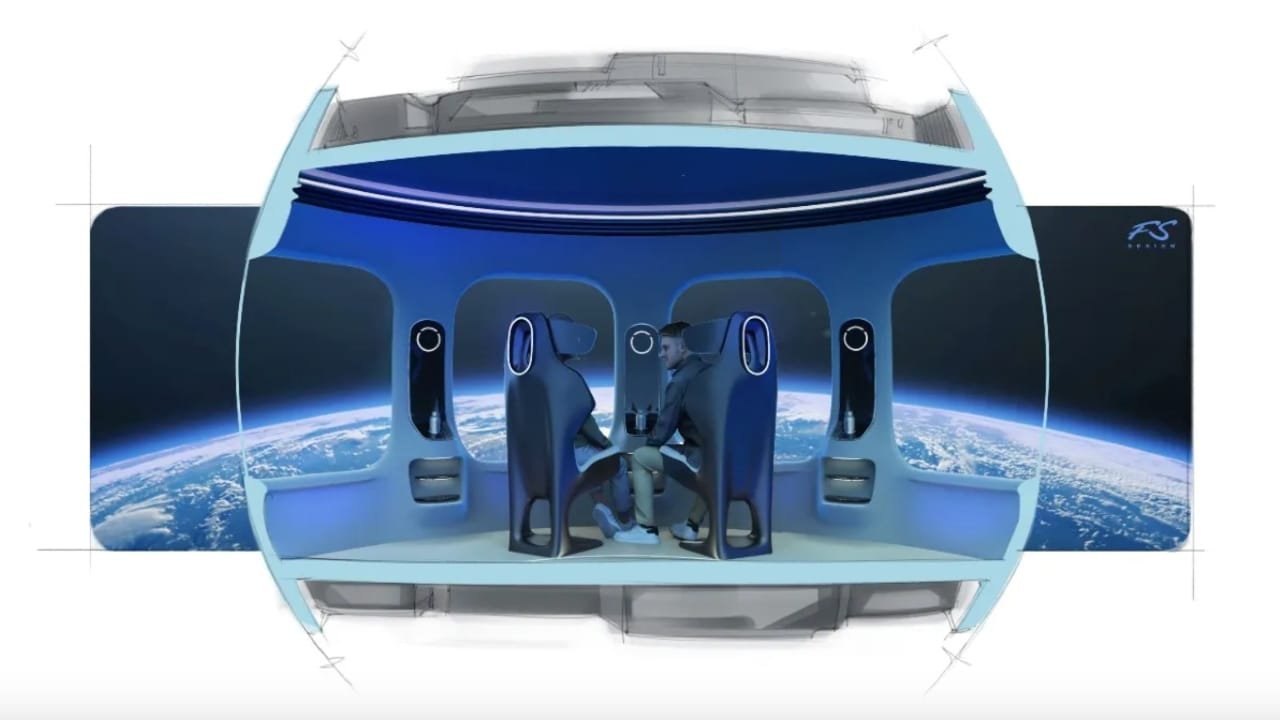Halo Space, the Spanish startup which is joining the burgeoning near-space balloon flight sector, has revealed its Aurora capsule. The company said eight passengers paying RM715,300 and a pilot will ascend 32 kilometres above the Earth beginning in 2026.
The interior of the capsule was created by Frank Stephenson, who formerly led design efforts at Ferrari, Maserati, and McLaren (and famously designed the next-generation Mini in 2001). Aurora arranges its passengers in a circle facing outwards around a central, also circular restroom.
The layout is different from its competitors: Florida-based Space Perspective, which has a lounge with semicircular seating; Zephalto in France, which has individual enclosed spaces; and Arizona-based World View, with the seating inside a more angular capsule.

The seats will be comfortable, but weight constraints mean they won’t offer the cushioning or range of motion of first-class commercial airline flights. While Aurora has a 16-foot diameter, the capsule’s maximum takeoff weight, including the nine occupants, is just 3,500kg, similar to a fully laden Chevy Suburban.
Safety and weight take priority over conspicuous comfort, so Stephenson and his team will have to remove another 440 pounds from the carbon-fiber craft to hit that target.
“Of course, we’ve done our due diligence and looked at what our competitors have shown,” Stephenson told Robb Report yesterday at the Aurora’s official unveil at London’s Peninsula Hotel. “But they’re often artist impressions or renderings, which show cabins with lounging room, which just isn’t realistic. Space is limited. You can’t have super-plush seats because that’s where you need to take the weight out. What we’re showing is what clients will get.”

But even if the capsule is pared back, Halo aims to make the experience worthy of the high price. Pre-booking will open later this year, according to CEO Carlos Mira, and the entire experience may last up to a week, depending on whether a client chooses to launch from the USA, Spain, Saudi Arabia or Australia.
Halo will arrange inbound travel and curate other local experiences, with stays in a luxurious tented camp near the launch site. Unlike the higher-altitude, 11-minute sub-orbital flights by Virgin Galactic and Blue Origin, there’s no zero-gravity moment, so Aurora passengers can wear whatever they want. “Heels are fine,” Mira quipped.

A pre-dawn launch will show a “white” sunrise at the edge of the stratosphere, revealing the curvature of the Earth and the deep black of space. Each passenger will have their own window. Aurora is designed to rotate slowly to share the best views. The meals are custom ordered by each passenger and will be loaded into compartments alongside each seat.
The “shy-tech” augmented-reality system can also be activated on demand, displaying flight data, which will appear to float beyond the vast window, similar to a head-up display in a car or aircraft. While space will be tight, Stephenson says passengers can leave their seats to stretch their legs, speak to the pilot or use the restroom.

At the end of the flight, the vast helium balloon will be cut away and later retrieved and recycled. A parachute will deploy and the pilot will steer the capsule back to Earth at a descent of about 10 feet per second, landing on the capsule’s skids. For safety, the seats will rotate to face either forward or backward, with passengers secured by four-point harnesses.
“It’s similar to supercar design in that you’re designing for a very specific purpose, with tight restraints,” Stephenson said. “You have to keep weight under control. That means the sense of luxury comes from good design: from material quality and tactility, fit and finish, sewing patterns, lighting and even the scent in the capsule. Details like that can make something feel expensive, but don’t necessarily add weight.”

The head was the first Stephenson ever designed, requiring smart engineering since the toilet and required water supply are two of the capsule’s heaviest components. “It was a chance to do a restroom like you’ve never seen before,” said Stephenson. “We’ve looked at the best out there and tried to integrate everything in a new way. It’s been fun.”
Is Stephenson hoping to use his carefully designed restroom at 32 kilometres above the Earth’s surface when manned test flights start next year? “Absolutely,” he says. “I’ve already volunteered to be one of Carlos’s first test chimpanzees.”
Previously published on Robb Report USA
Photography: Halo Space




